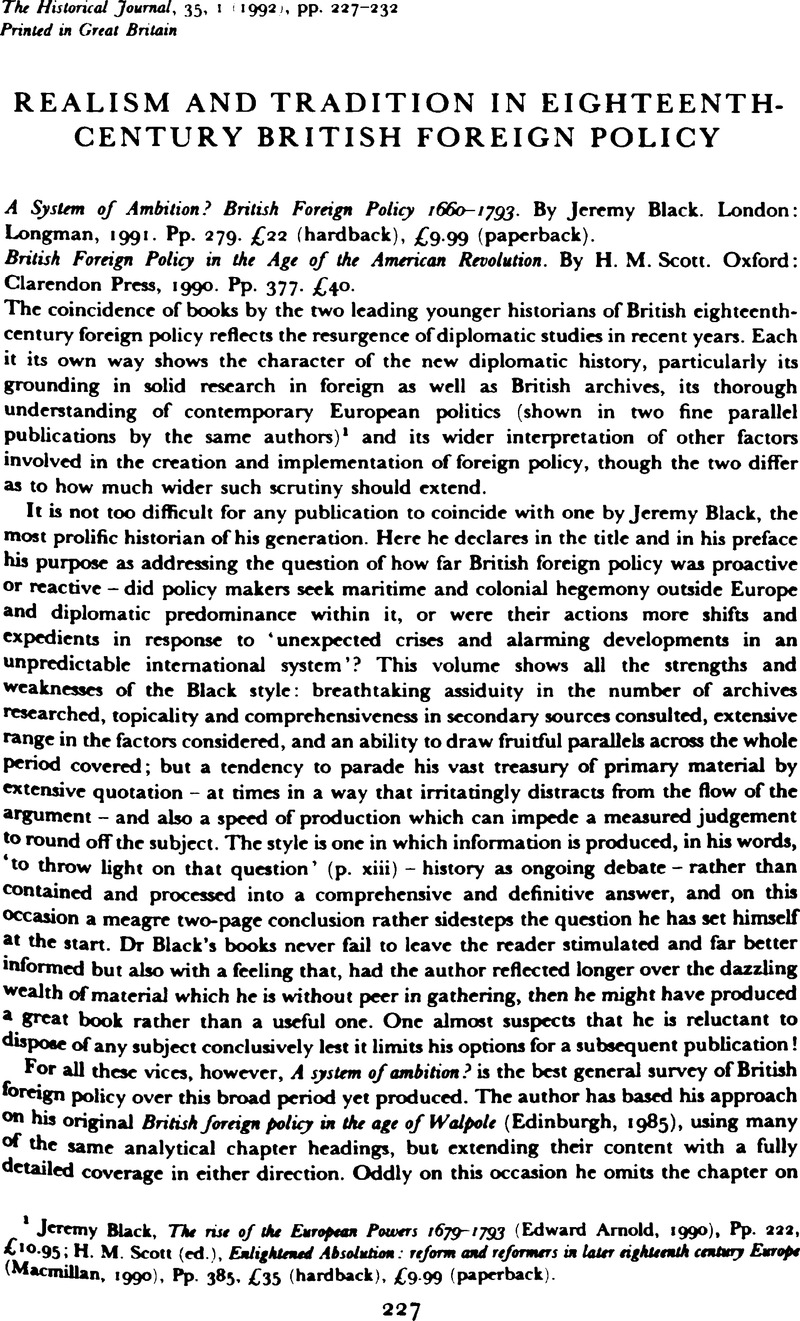No CrossRef data available.
Published online by Cambridge University Press: 25 March 2010

1 Black, Jeremy, The rue of the European Powers 1679–1793 (Edward Arnold, 1990), Pp. 222, £10.95Google Scholar; Scott, H. M. (ed.), Enlightened Absolution: reform and reformers in later eighteenth century Europe (Macmillan, 1990), Pp. 385, £35 (hardback), £9.99 (paperback)CrossRefGoogle Scholar.
2 McKay, D. and Scott, H. M., The rise of tke Grtat Powers 1648–1815 (London, 1983).Google ScholarBlack's, Jeremy The rise of tke European Powers 1679–1793 now largely replaces this as the most up-to-date surveyGoogle Scholar.
3 Scott, H. M., ‘“The true principles of the Revolution”: the duke of Newcasde and the idea the old system’, in Black, J. (ed.), Knights errant and tnu Englishmen (Edinburgh, 1989), pp. 55–91.Google Scholar
4 Malmesbury, Earl of (ed.), Dianas and correspondence of Janus Harris, first earl of Malmusbury (London, 1845), II, 211–2.Google Scholar
5 Yonge, C. D., The life and administration of Robert Bankes, second earl of Liverpool (London, 1868). I, 23.Google Scholar
6 For example Sir Dalrymple, John, Queries concerning the conduct which England should follow in foreign politics in the present state of Europe, written in October 1788 (London, 1789), Pp. 24–5Google Scholar ; ‘A calm observer’, Letters on the subject of the Concert of Princes (London, 1793), pp. 126–7Google Scholar.
7 Baugh, D. A., ‘Why did Britain lose command of the sea during the war for America?’ in Black, J. and Woodfine, P., (eds.). The British navy and the use of naval power in the eighteenth century (Leicester UP., 1988), pp. 149–69.Google Scholar
8 Scott, H. M., ‘British foreign policy in the age of the American Revolution’, International History Review, VI (1984), 123.Google Scholar